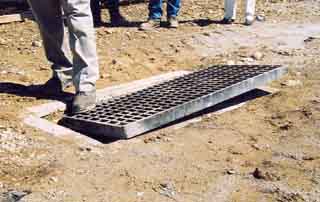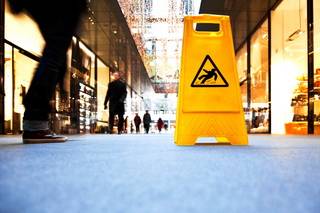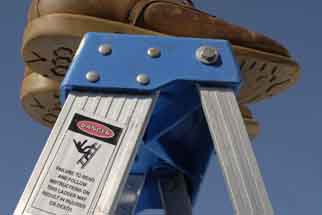Slip and fall accidents can occur at anytime and on a variety of walking and working surfaces including stairs, ladder treads, escalators and tiled floors. While these accidents usually result in minor injuries, more serious injuries can occur. leaving the property owner or insurance company vulnerable to litigation. CED has investigated hundreds of these cases over the years. A recurring problem when accidents turn into suits is that the surface and environment were not tested or documented immediately after the slip event or claim. Even on quality tile and laminated surfaces, years of wax build up can change the slipperiness of the surface.
When brought in shortly after an accident happens, CED engineers can reduce this exposure by providing thorough examination, testing of a surface and documentation at a reasonable rate. The first thing that needs to be accessed is the “slipperiness” of the surface in question. Even on a single type of surface, the slip resistance will vary depending on the location, whether a surface still has a tread on it and whether the surface is wet or dry. CED engineers use a tool called the English XL Slipmeter to measure the slip resistance of a walking surface at the scene of the accident under both wet and dry conditions, whether the accident is indoors or outside. A simple attachment for the meter even permits the engineer to measure the slip resistance of stair treads.
CED engineers perform the slip resistance testing based on standard protocols outlined by the American National Standards Institute (ANSI). The protocol for slip testing is outlined in ASTM F 1679, Standard Test Method for Using a Variable Incidence Tibometer (VIT) or English XL Slipmeter. This method covers the operational procedures for determining the slip resistance of footwear—sole, heel or related materials—against walkway surfaces. The English XL slipmeter is portable and can be taken on airplanes, thus permitting the measurement of the slip resistance of walking surfaces anywhere in the world.
Utilizing the information that has been obtained from the site inspection and through the testing that is completed, the engineer will then formulate an opinion for the client. Performing these investigations in a timely manner after the incident has been reported can help a company reduce their exposure to litigation and weed out erroneous claims.






